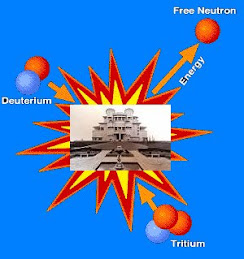FUTURE TENSES
- To talk about something in the distant future e.g. 'Things WILL be different in 100 years' time
- To talk about things that the speaker cannot control (ie making predictions) e.g. 'Scotland WILL win the cup this year'. 'No they won't. Ireland WILL win'.
- When we decide something spontaneously e.g. 'I think I'll have another cup of coffee'.
- Making plans e.g. 'I think I'll go to the cinema tonight, if not I'll stay in and read a book'.
- We use GOING TO (+ verb) to talk about our intentions, things we have already decided to do in the future, e.g. 'We're going to conduct an experiment to find out the incidence of heart disease among menopausal women'. 'Next week there's GOING TO be an IT conference in Milan'.
- To make predictions based on observations we can make in the present which will give us an idea of what is GOING TO happen e.g. 'The sky looks grey. I thing it is GOING TO rain this afternoon'.
(to be + verb-ing)
- e.g. 'Are you doing anything after the lesson?' 'Yes, I'm playing tennis with William'.
- 'Are you taking a holiday this year?' 'Yes, we're spending 2 weeks in Greece'.
We can call this the 'agenda' tense. You are referring to events already jotted down in a diary or agenda which you plan to do. We often use the Present Continous to talk about things that people have arranged to do in the future.
Simple Present tense with future meaning
e.g. 'What time does the train leave?' 'It leaves at 9.00 and arrives at 10.15'.
We use this to talk about a programme/ timetable in the future.
Also used for arrangements and itineraries is the construction 'be + to': e.g. 'The Prime Minister IS TO attend the G8 summit conference in Okinawa, Japan, next week'.
to be ABOUT TO
We use this to state what we are on the point of doing, or what is going to happen in the immediate future.
e.g. 'We are ABOUT TO leave'. 'He is ABOUT TO complete his thesis on nuclear physics'.
FUTURE CONTINUOUS (will be + verb-ING form)
This is almost the same as the Present Continous, only that it refers to a point in the future.
e.g. 'This time next week we WILL BE SITTING on the plane to Tokyo'.
'I'LL BE COMING to the meeting at 3 p.m. as soon as I have finished writing the paper'.
In these cases, something will be going on at a CERTAIN TIME in the future.
It can also be used to refer to things or events which are fairly certain to happen.
e.g. 'The tide WILL BE COMING in again by 6 p.m.'.
FUTURE PERFECT tense (will have + past participle)
This describes an action that will be over at a certain future time
e.g.
'By the end of the month, we'LL HAVE SPENT all our money'.
'By next month, I HOPE TO HAVE COMPLETED my thesis'.
'The film WILL HAVE FINISHED by now. Let's see if John is waiting outside the cinema'.
The future form WILL is used within a first conditional construction. It is used in the resulting clause. In the initial clause, we use the PRESENT SIMPLE. The basic construction is as follows:
IF + PRESENT-->(results in) WILL + verb
It is probable or likely that it WILL happen in the future;
e.g.
IF he studies, he'LL PASS the exam
IF you take bus number 59, you'LL arrive at Padova train station
AS SOON AS the storm is over we'LL go shopping
Often in the case of 'WHEN' and 'AFTER', we also add a perfect construction 'HAVE + past participle'. Nevertheless, it still implies a future situation:
e.g. WHEN you HAVE FINISHED this exam we'LL celebrate!
PROBABILITY IN THE FUTURE:
Use of MIGHT/MAY/COULD and PERHAPS, MAYBE, PROBABLY, LIKELY, UNLIKELY.
Being as the future is uncertain, we can use modal verbs and various adverbs to denote varying degrees of PROBABILITY of something happening (or not, as the case may be).
The modal verbs MIGHT-MAY-COULD show that there is a 50-50 chance that something will happen. They express uncertainty.
By adding 'perhaps', 'maybe', 'probably', 'it is likely/unlikely that...' we can also alter the degree of certainty of a future event.
e.g.
'We may complete the project by November if all goes according to schedule'.
'It might rain tomorrow according to the weather report. Let's delay the trip'.
'It is unlikely that a woman WILL be elected as US President in the near future'.
'He will probably go on to do a Ph.D after his Master's degree, depending on his financial situation'.
'Dr. Thompson may decide not to accept the consultant's position as he is toying with the idea of opening a private clinic'.





Tidak ada komentar:
Posting Komentar